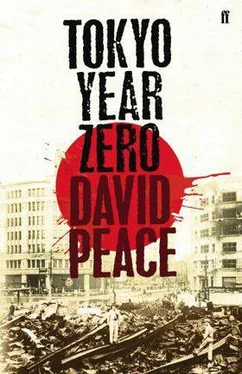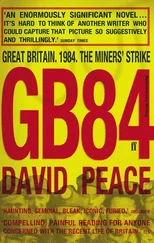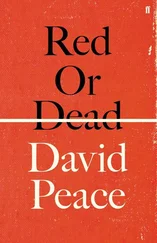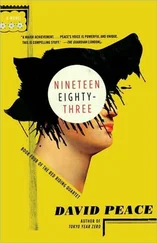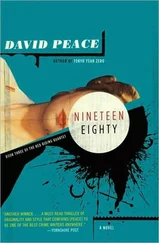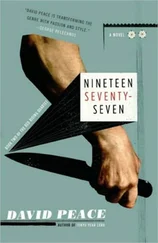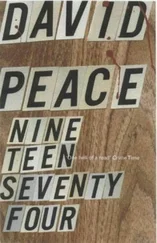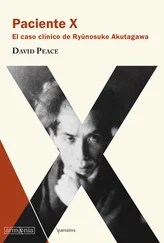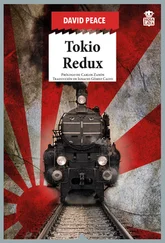‘Shut up, idiot!’ shouts the uncle as he picks up his pipe and gets to his feet. He walks off into the other half of the room, closing the screen doors behind him, still shouting, ‘Idiot!’
‘What do you want?’ asks the cousin –
‘I want to know how often your cousin Yoshio comes back here,’ I tell him. ‘I particularly want to know how often he came back here in the last two years, the dates he came and the things he might have brought back with him. It’s important you remember…’
‘Well, that’s easy to remember,’ laughs the cousin now. ‘Easy because we never saw him. He never came back here…’
‘I don’t believe you,’ I tell him. ‘I don’t believe you because I have already met six or seven other families near here who do remember that he came back, who do remember the dates and the things he brought back. So, I’ll ask you again, to remember…’
‘And I’ll tell you again,’ says the cousin. ‘He was never here. We heard he’d been back to Tochigi, but we never saw him.’
‘You never saw him?’ I ask. ‘He never came here?’
‘Why would he come here?’ asks the cousin. ‘We’ve nothing to sell him, nothing to buy from him. Why come?’
‘Because you’re his family.’ I say. ‘That’s why.’
‘He never came back here,’ repeats the cousin –
In the dark, humid hearth and family home –
‘That’s all I know, so that’s all I’ll say,’ the cousin says now. ‘If you want to hear more, just knock on any door in the village.’
*
His father was the eldest of the brothers, the neighbours tell us. He was a drinker, a gambler and a womanizer. He’d had a farm, he’d had an inn, the Hashimoto-Ya, the best in the village. But he lost them all through his gambling, his drinking and his womanizing. Even his horse. He ended his days at Furukawa Denki with the rest of them –
The father’s first younger brother worked there all his life, the neighbours tell us. He was a slow worker but he was never absent. He worked only nights and he handed over all his pay to his mother. He was a stutterer and an idiot and he was the best of them –
The second younger brother is the uncle you met, the neighbours tell us. He was once the most dangerous man in the village; drank heavily and carried a knife. He has been in prison. He is still a short-tempered and aggressive man, but now he rarely speaks.
The eldest brother of Kodaira Yoshio is not long dead, the neighbours tell us. He worked at Furukawa with the rest of them but he was fired because he stole from the other workers and he slept on the job. He went to Tokyo but soon came back, wandering from job to job, living off odd jobs and handouts. He was another one who rarely spoke. Even made his own wife and children eat their meals outside so he could eat in peace. In April last year he was arrested for stealing potatoes but he died before the case ever came to court –
His elder sister was much the same, the neighbours tell us. She worked at Furukawa Denki too, just like the rest of them. She married a man who was working there, but it didn’t last more than a year. Then she married a Korean, again for less than a year. She was often hysterical and always a liar and died in January this year –
He was a bad lad himself, the neighbours are quick to tell us. But he wasn’t the worst of the family. He was poor at his schoolwork, lazy and careless, but he never drank and he never gambled. He had the Kodaira family temper but he never fought with strangers –
It was a shock, then, when he killed his father-in-law –
He has a bastard son, the neighbours whisper to us. He must be about sixteen years old. Not a nice boy, a creep to the older kids and a bully to the younger ones. This was the son he had by the woman he had his affair with. This was the affair that made his first wife’s family ask him to divorce her. That was the request that caused him to attack her family and murder her father –
That got him sent to prison –
That broke his mother’s heart, the neighbours tell us now. For his mother was kind and honest, a loving and long-suffering woman –
‘But she lived her life in tears,’ they tell us. ‘In tears…’
*
These mountains and valleys, these forests and fields, all look the same to me. Up the side of one small mountain and down the other side, a short tunnel here, a longer tunnel there, then up and down another slope and along another narrow road until the truck stops outside another small farm set back from the road by another small ditch at the foot of another small mountain. Now, again, Tachibana climbs out of the back of the truck and goes inside the house while Ishida, the driver and I sit and sweat inside the truck until Tachibana returns with another old farmer and introduces us to Mr. Samura –
‘The man who found the body,’ he says. ‘Ishikawa’s body.’
Then the driver starts the ancient truck again and slowly, very slowly we climb up the narrow road that leads up the small mountain slope behind the farm until Mr. Samura nods and grunts and Tachibana calls out to the driver who pulls up on the mountainside –
‘This is where he found her,’ says Tachibana. ‘This place.’
Ōaza Mizuki-chi, Manako-mura, Kami Tsuga-gun …
Everyone climbs out the truck. Everyone wipes their faces, wipes their necks and looks back down the mountain at the patchworks of fields and ditches, of farms and houses, and then everyone turns back round to stare up into another wood on another slope of another mountain, up into more shadows and more trees –
More black trunks, their branches and their leaves …
Samura points into the woods, ‘It’s that way…’
He walks behind me. He walks behind me …
Now Tachibana and I follow the old farmer as he clambers up off the narrow road and into the woods, pointing this way and that as he goes, mumbling things we can’t catch as the trees and their trunks stand closer and thicker together, Ishida following behind –
He walks behind me, through the trees …
Samura comes to a stop up ahead and looks round for us, shouting, ‘This is the place. This is the place. This is the place…’
The cicadas are deafening, the mosquitoes hungry again …
‘Last September,’ he says. ‘I was looking for leaves…’
Between the trees, the black trunks of the trees …
‘Leaves to dry out and to mix with tobacco…’
Their branches and their leaves …
‘I trod right on her bones,’ he says –
Her white, naked body …
‘I’d smelt her too,’ he says. ‘As I was gathering up my leaves. But I’d thought it was an animal, same as when I first trod upon her bones, then I slipped, I fell and I saw it wasn’t no animal bones…’
‘I look like bones … I look like bones…’
‘I knew they were human bones…’
I turn round and around, among these trees and these branches, and I ask Samura, ‘Are you sure this is the exact place?’
Samura nods. ‘Can’t you feel her still …?’
Round and around, among these black trees and their trunks, asking Tachibana, ‘Was this place ever examined as a crime scene?’
Tachibana lowers his eyes. Tachibana bows his head –
‘Shit,’ I curse, again and again, as I turn round and around, the black trunks and their branches turning round and around –
The cicadas are deafening, the mosquitoes hungry …
As I drop to my knees to begin to search –
Digging and digging and digging …
To search, again.
*
‘Over here,’ shouts Ishida. ‘I’ve found something here. Look…’
Namu-amida-butsu. Namu-amida-butsu. Namu-amida …
Читать дальше
